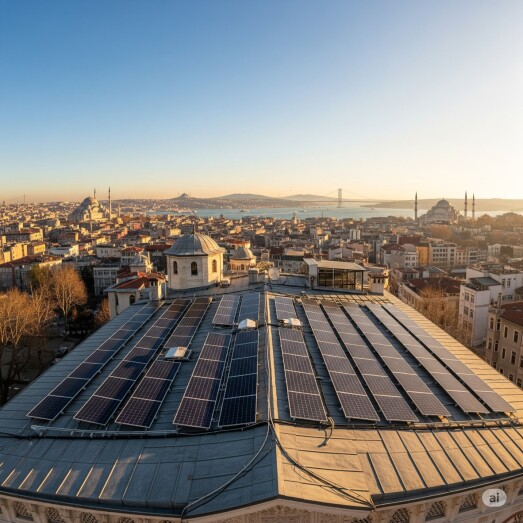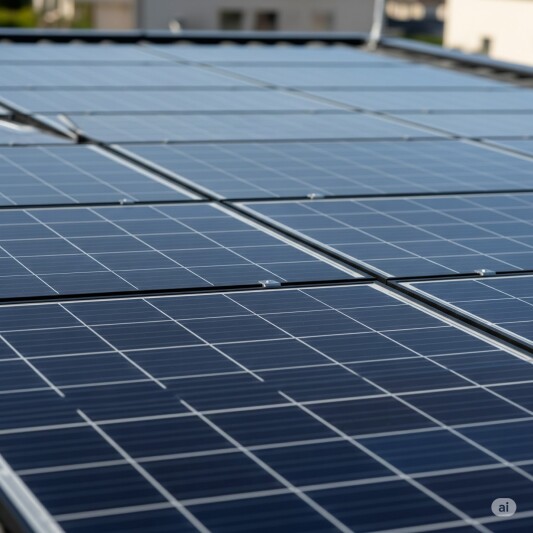Solar panels
Solar panels are devices that convert sunlight into electricity. They are made up of many solar cells, usually composed of silicon, which capture sunlight and turn it into direct current (DC) electricity. This electricity can then be used to power homes, businesses, and other electrical systems, often through an inverter that changes DC into alternating current (AC) used by most electrical devices.
Solar panels are a clean, renewable energy source that helps reduce reliance on fossil fuels and lowers electricity bills. They are commonly installed on rooftops, open fields, or solar farms to harness the sun’s energy efficiently.

Key Features of Solar Panels
Renewable Energy Source: Solar panels use sunlight, a limitless and clean energy resource.
Durability: Designed to withstand various weather conditions including rain, snow, and hail.
Low Maintenance: Require minimal upkeep after installation.
Scalability: Can be installed for small residential use or large-scale commercial solar farms.
Silent Operation: Generate electricity without noise or emissions.
Applications of Solar Panels
Residential: Powering homes, water heating, and small appliances.
Commercial: Energy supply for offices, factories, shopping centers, and warehouses.
Agricultural: Running irrigation systems, greenhouses, and farm equipment.
Remote Areas: Providing electricity in off-grid locations without access to the electrical grid.





